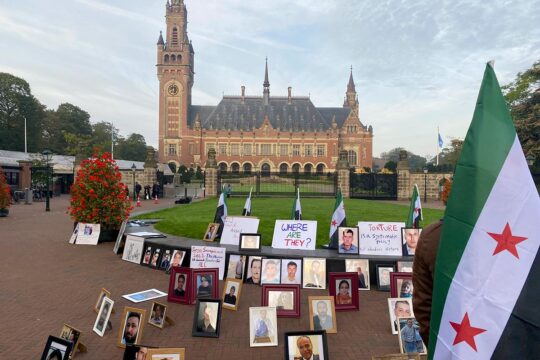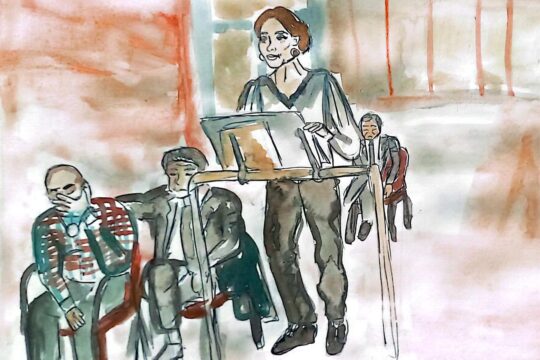To listen to the podcast, click on the "play" button below:
This week we take a look at the new developments in several court cases seeking to prosecute atrocities committed during Syria’s civil war.
Across Europe, a series of cases have been brought in national courts, including Germany, the Netherlands, Austria, Switzerland and France, where alleged perpetrators are being brought to justice under local laws.
In the Netherlands, the district court of the Hague has begun its criminal case against a 35-year-old Syrian man known as Mustafa A. He is accused of committing war crimes and complicity in torture as a member of the regime-backed criminal organisation Liwa Al Quds in Syria. It’s considered a landmark case, marking the first time that Syrian regime crimes will be on trial before a Dutch court. And just a few days ago, another Syrian man was arrested by the International Crimes Team of the Dutch National Police on suspicion among other things, of sexual violence as a crime against humanity.
The first criminal trial worldwide against a Syrian regime official began in Germany in 2020. In 2022 the Koblenz trial found the main defendant, Anwar Raslan, guilty of participating in crimes against humanity, orchestrated and executed by the Assad regime.
And just last month in France, judges issued arrest warrants for Syria’s President Bashar al-Assad, his brother Maher al-Assad, and two other senior officials over the use of banned chemical weapons against civilians.
For victims of Syria’s civil war, these courts are providing an alternative pathway to justice, without having to rely only on the international courts – and of course, we also discuss the significance of the recent provisional measures ruling by the International Court of Justice on torture – that have often hit roadblocks in attempting to prosecute Syrian atrocities.
 ASYMMETRICAL HAIRCUTS
ASYMMETRICAL HAIRCUTS
This podcast has been published as part of a partnership between JusticeInfo.net and Asymmetrical Haircuts, a podcast on international justice produced from The Hague by journalists Janet Anderson and Stephanie van den Berg, who retain full control and independence over the contents of the podcast.







